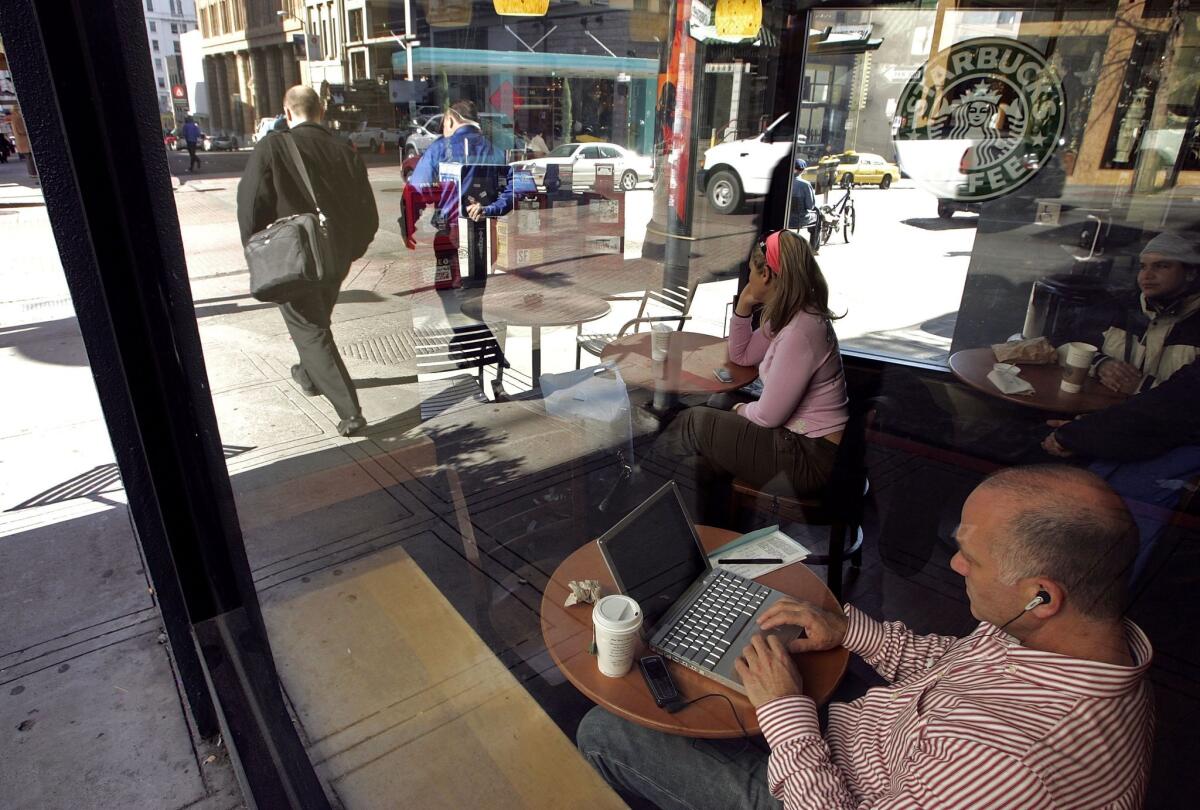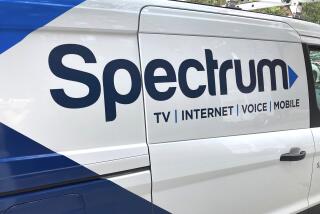Hot spots for affordable Internet access while traveling

- Share via
Staying connected on the road can be costly, especially if you’re staying in a hotel that charges you on top of what you’re already paying for your room.
Major wireless companies offer hot spots, but they can set you back quite a bit. Verizon, for instance, has a Verizon JetPack 4G LTE that is $150 without a contract or 99 cents with a two-year contract. You’ll pay a monthly line access fee and then, depending on your data use, about $30 a month for 4GB of data.
Here are some ways to keep your costs down; if you have other ideas, send them to travel@latimes.com.
— Boingo. Gary Arndt, whose website Everything-everywhere.com chronicles his extensive journeys, has been traveling the world nonstop the last seven years, logging on from some faraway places. Arndt uses a service called Boingo (www.boingo.com), which directs users to hot spots. As a result, Arndt has been able to log on in such places as Britain, Switzerland and Thailand.
Monthly plans are available for a variety of travel schedules and needs, allowing users to access their Internet accounts at any of the service’s hot spots — it claims a million — around the globe. It also offers time-limited plans, which can be hourly or daily. “There are even some hotels where I have been able to use my Boingo account, which means I didn’t have to pay extra for hotel Wi-Fi,” Arndt said. Boingo’s $9.95 per month plan allows unlimited access for up to two devices throughout the Americas.
— Internet on the Go. Grabbing Internet access on the road in unfamiliar territory can be problematic. You never know who has Wi-Fi and whether you’ll be able to access it. Dave Hunter, author of “Along Interstate 75,” a guidebook for travelers using the highway to head from Canada to Florida, uses Internet on the Go (www.internet-go.com) to supplement his connectivity needs from his automobile. He likes it partly because it doesn’t require a monthly contract.
The initial payment for the hot spot is about $100, but from there it’s just a matter of recharging your account whenever you run low on time. If you don’t require the hot spot very often, simply place a small amount of credit on your account as a backup. You won’t be required to pay again until you’ve used up your allotment. Hunter does point out that travelers need to be prepared to manage their expectations. “This isn’t something you can use to stream video,” he said. “It’s not the fastest, but it certainly does the job.” Internet-Go.com has further details regarding sign up.
You’ll have to manage other expectations too: If you look at its coverage map, there are swaths of the West that are not covered.
— FreedomPop. The idea behind FreedomPop (www.freedompop.com) is that access to the Internet should be a right, not a privilege. That means that if you buy one of its wireless devices — and there are several — you can access the Internet and its first 500MB for free; you can add to that as you go along for as little as 2.5 cents for a megabyte of data. It has recently added FreedomSpot to its repertoire of devices, and the device can offer access to as many as eight devices, including tablet, smartphones and laptops. Its battery lasts as long as six hours. Like Internet on the Go, the coverage doesn’t extend to every place in the U.S. But if you’re a traveling family with lots of devices, FreedomSpot might be right up your alley.
— Buying a new car. OK, a little more expensive than some of the aforementioned options. If you buy a new vehicle this year, you may have the ability to turn your car into a hot spot as well. Several newer makes and models from General Motors will offer this capability as a subscription service, with or without OnStar. Monthly price points start as low as $5 with limited data. It’s not a home Internet replacement for full-time travelers by any means, but it is an affordable backup option for those times when email access from a highway or rest stop is critical.
I’m sure we need not tell you not to use your devices while you’re driving, but just in case that even pops into your head, don’t even think about it.
More to Read
Sign up for The Wild
We’ll help you find the best places to hike, bike and run, as well as the perfect silent spots for meditation and yoga.
You may occasionally receive promotional content from the Los Angeles Times.





